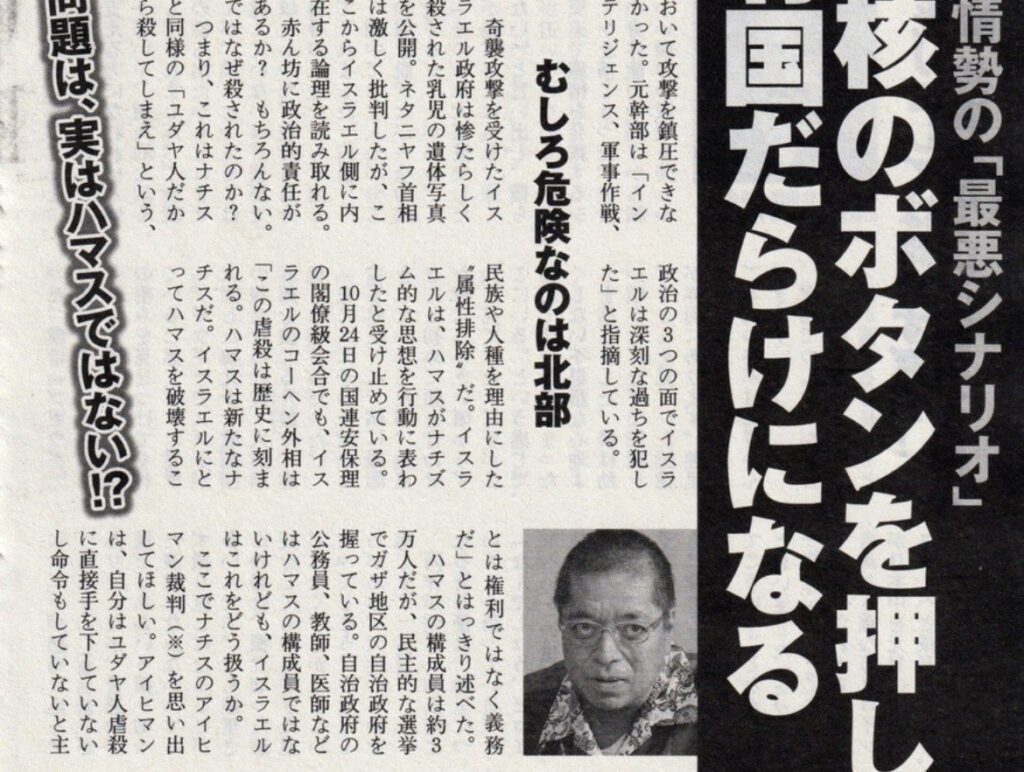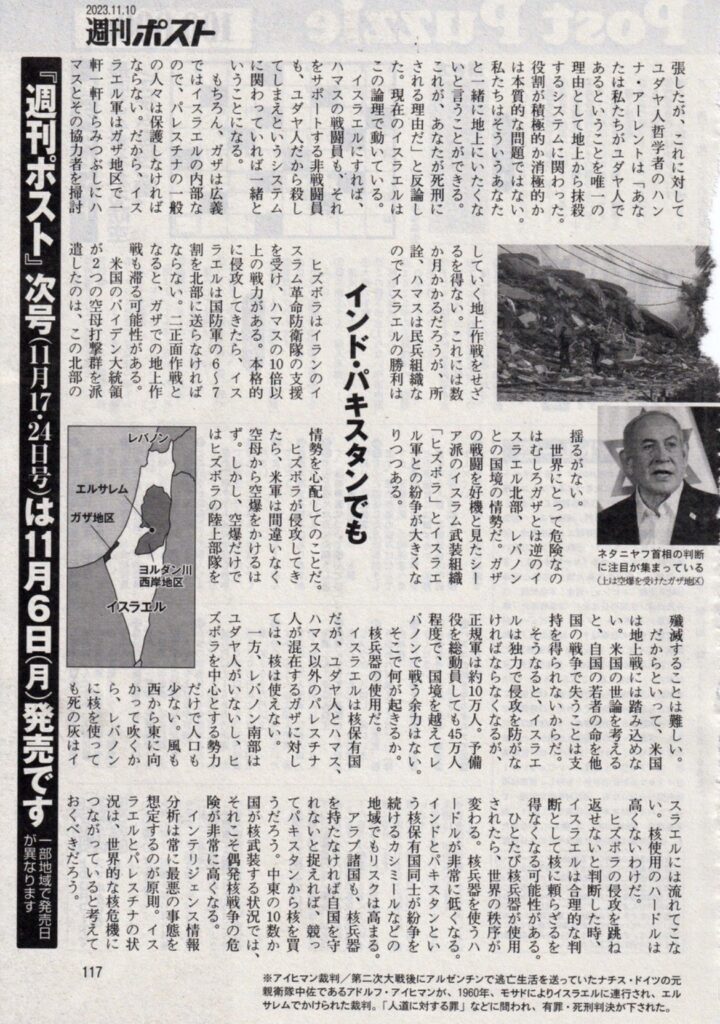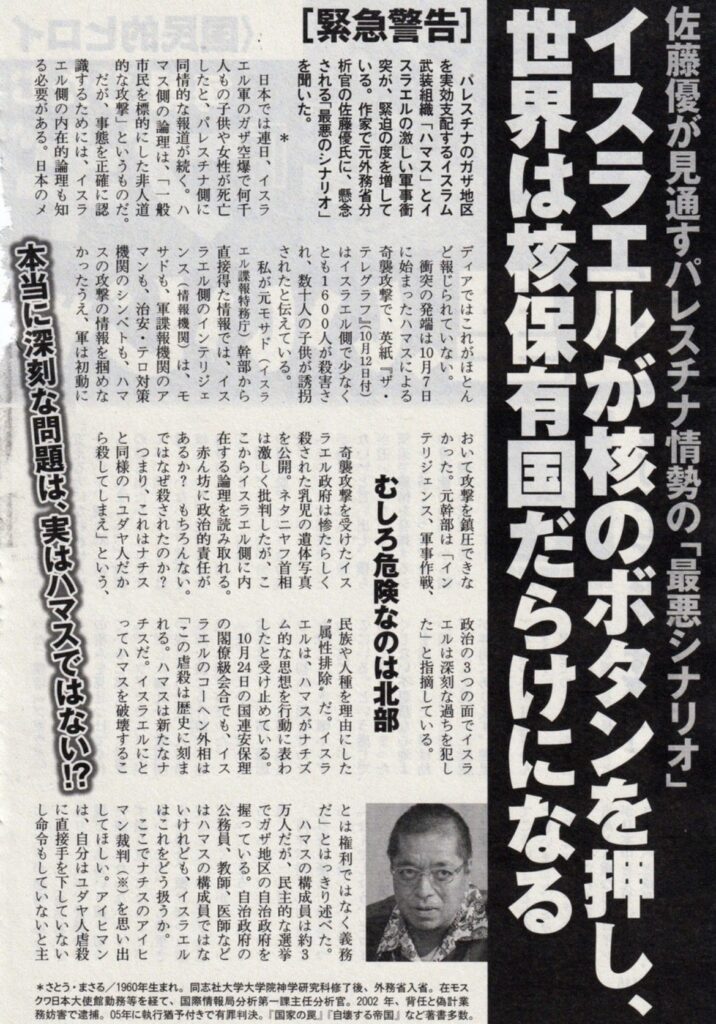
- ARAB NEWS
- 31 Jul 2025

TOKYO: A Japanese expert has warned about the “worst-case scenario” of Israel using nuclear weapons in its conflicts in the region if it is overwhelmed by attacks from Hezbollah and Hamas.
SATO Yu, formerly an analyst at Japan’s Ministry of Foreign Affairs, wrote in the Shukan Post that Hezbollah, which is supported by Iran, is at least 10 times more powerful than Hamas. To defend its northern border, Israel would have to send 60 to 70 percent of its defense forces to the north, potentially compromising its operations in Gaza.

While Israel will receive support from the United States, including possible military action such as bombardments of Hezbollah positions from vessels in the Mediterranean Sea, it will have to rely on its own ground forces to defend its northern border and is unlikely to cross that border into Lebanon.
Sato says if Israel’s defensive line collapses, the use of nuclear weapons becomes more likely, more so because the “collateral damage” won’t directly affect Israel or its citizens. The wind, he points out, blows from west to east and fallout from nuclear weapons used in Lebanon would barely affect Israel.
Once nuclear weapons are used, says Sato, the world order will change. The hurdle to use nuclear weapons becomes very low. Risks will also increase in areas such as Kashmir, where nuclear powers India and Pakistan continue to clash.

Arab countries will compete to buy nuclear weapons from Pakistan if they believe they cannot protect their countries without nuclear weapons, according to the article. With more than a dozen countries in the Middle East armed with nuclear weapons, the risk of an accidental nuclear war would be very high.
Israel’s readiness has also been called into question. Sato says he received information from Mossad and other intelligence sources that confirmed Israel had no information on the Hamas attacks before they occurred.
In principle, intelligence information analysis always assumes the worst. Sato concludes that Israel’s failure has brought the world closer to a nuclear crisis.